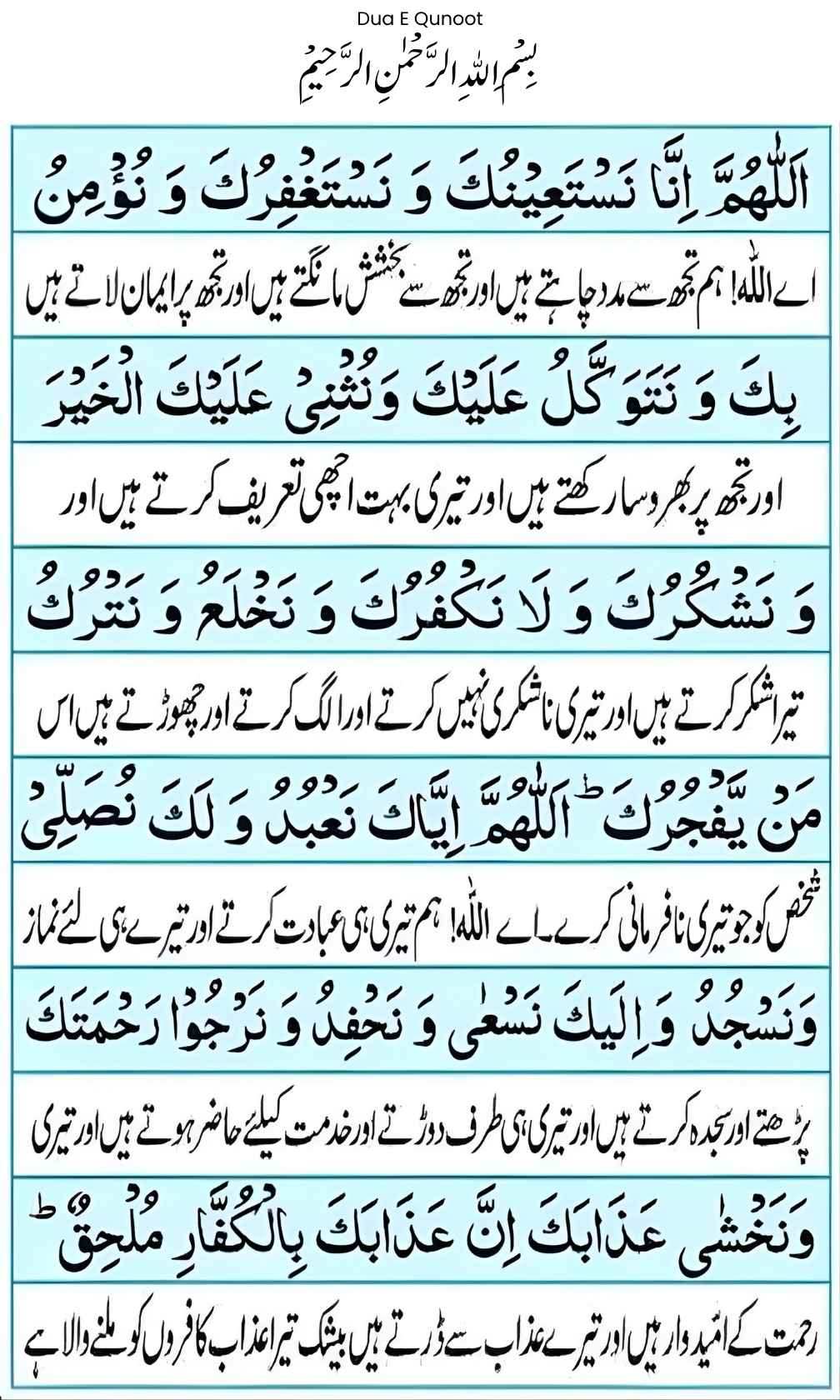Blog
Life After Death in Islam: A Comprehensive Analysis

Life after death is a central tenet of Islamic belief, profoundly influencing the moral and spiritual dimensions of a Muslim’s life. The doctrine shapes ethical conduct, provides meaning to existence, and connects humanity with divine accountability. This detailed exposition delves into the concept of life after death, the purpose of human life in this world, and provides substantiation from the Qur’an and Hadith, elaborating on key themes such as the stages of the afterlife, the Day of Judgment, and the eternal abodes of Paradise and Hell.
Purpose of Human Life in Islam
Islam answers the age-old question: “Why are we here?” The Qur’an articulates the purpose of human existence as servitude to Allah (SWT). Allah declares:
“And I did not create the jinn and mankind except to worship Me.”
(Qur’an 51:56)
Worship in Islam transcends ritual acts; it encompasses every action done with sincerity and intention to please Allah. The purpose of life is twofold:
- Worship and Obedience to Allah: By observing the prescribed acts of worship, Muslims express their devotion and gratitude to their Creator.
- Role as Khalifah (Steward on Earth): Humans are entrusted with the responsibility of maintaining harmony and justice on Earth.
“Indeed, I will make upon the earth a successive authority.”
(Qur’an 2:30)
This dual purpose aligns with Islam’s broader vision of a life that balances individual spiritual growth and collective well-being.
Life as a Test
The Qur’an portrays life as a test, a temporary phase designed to evaluate human faith, patience, and deeds:
“He who created death and life to test you as to which of you is best in deed.”
(Qur’an 67:2)
Human beings are endowed with free will, enabling them to choose between right and wrong. This moral agency underscores their accountability on the Day of Judgment.
The Concept of Life After Death
Islam teaches that death is not the end but a transition to another realm. The belief in an afterlife instills a sense of purpose, urging individuals to prepare for eternal life. The Qur’an and Hadith provide vivid descriptions of the events following death, emphasizing the reality of resurrection, judgment, and eternal reward or punishment.
Stages of the Afterlife
- Death and the Soul’s Departure
The moment of death marks the separation of the soul from the body. The righteous are greeted by angels with glad tidings, while the wicked face a terrifying ordeal:
“Indeed, those who have said, ‘Our Lord is Allah’ and then remained steadfast—the angels will descend upon them, [saying], ‘Do not fear and do not grieve but receive good tidings of Paradise, which you were promised.'”
(Qur’an 41:30)
- Barzakh (The Intermediate Realm)
Barzakh is the state between death and resurrection. Souls experience either comfort or torment based on their deeds:
“And behind them is a barrier until the Day they are resurrected.”
(Qur’an 23:100)
The Prophet Muhammad (PBUH) explained that the grave could be a garden of Paradise or a pit of Hell.
- The Day of Resurrection (Qiyamah)
The Day of Judgment begins with the resurrection of all humanity. The Qur’an vividly describes the chaos and awe of this day:
“When the Earth is shaken with its [final] earthquake and the Earth discharges its burdens… That Day, the people will depart separated [into categories] to be shown [the result of] their deeds.”
(Qur’an 99:1-6)
- The Accountability and the Scales
Every individual will be presented with their record of deeds. The scales of justice will determine their fate:
“And We will set up the scales of justice for the Day of Resurrection, so no soul will be treated unjustly at all.”
(Qur’an 21:47)
- The Eternal Abodes: Paradise and Hell
Based on their deeds, souls will enter either Paradise (Jannah) or Hell (Jahannam). Paradise is described as a place of eternal bliss:
“Indeed, the righteous will be in pleasure.”
(Qur’an 82:13)
Hell, on the other hand, is a realm of unimaginable torment for those who rejected faith:
“Indeed, the wicked will be in Hellfire.”
(Qur’an 82:14)
Evidence from the Qur’an and Hadith
Qur’anic Evidence
- Resurrection“And they say, ‘When we are bones and crumbled particles, will we truly be resurrected as a new creation?’ Say, ‘Be you stones or iron… Allah will resurrect you.'”
(Qur’an 17:49-51) - Accountability“So whoever does an atom’s weight of good will see it, and whoever does an atom’s weight of evil will see it.”
(Qur’an 99:7-8) - Reward and Punishment“As for those who believed and did righteous deeds, they will have the Gardens of Paradise as a lodging.”
(Qur’an 18:107) “But as for those who disbelieved, garments of fire will be cut out for them.”
(Qur’an 22:19)
Hadith Evidence
- On the Grave and Barzakh The Prophet (PBUH) said:“The grave is the first stage of the Hereafter; whoever passes it safely will find the rest easy, but if he does not, then the subsequent stages will be more difficult.”
(Sunan al-Tirmidhi) - Resurrection and Judgment“The feet of the son of Adam will not move on the Day of Judgment until he is asked about five things: his life and how he spent it, his youth and how he used it, his wealth and how he earned and spent it, and how he acted upon his knowledge.”
(Sunan al-Tirmidhi, Hadith 2416) - Paradise and Hell“Allah has prepared for His righteous servants what no eye has seen, no ear has heard, and no human heart has conceived.”
(Sahih al-Bukhari)
Human Responsibility and Preparation for the Afterlife
Islam emphasizes that belief alone is insufficient; it must be accompanied by righteous deeds. The Qur’an repeatedly links faith with action:
“Indeed, those who have believed and done righteous deeds will have gardens beneath which rivers flow.”
(Qur’an 85:11)
Key Responsibilities
- Worship and Rituals: Regular prayer, fasting, zakah (charity), and Hajj are pillars of Islam that connect individuals to Allah.
- Ethical Conduct: Honesty, justice, and compassion are integral to a Muslim’s life.
- Service to Humanity: Helping others is an act of worship. The Prophet (PBUH) said:“The best of people are those who bring the most benefit to others.”
(Sunan al-Kubra)
Conclusion
The belief in life after death profoundly impacts a Muslim’s life, fostering accountability, hope, and resilience. The Qur’an and Hadith emphasize that this world is a transient phase, urging believers to strive for eternal success. By fulfilling their purpose, worshipping Allah, and adhering to His guidance, humans can attain the ultimate reward: Paradise.
May Allah grant us the understanding to prepare for the Hereafter and make our eternal abode among the righteous. Ameen.
“And whoever desires the Hereafter and exerts the effort due to it while he is a believer—it is those whose effort is ever appreciated [by Allah].”
(Qur’an 17:19)
Blog
6 Types of Umrah Deals to Consider for Your 2026 Pilgrimage

Umrah is a spiritual pilgrimage to the House of Allah Almighty and is a dream of every single Muslim living on this planet. If you are someone who is looking for Umrah Packages to embark on this sacred voyage in the coming year, you are at the right place. We will help you discover some types of Umrah deals that can facilitate your journey to make it more fulfilling. Whether you are seeking a budget-friendly way of completing this sunnah or you want to prioritise comfort over savings, this write-up has covered everything for you. Let us not take up more of your time anymore and jump directly into it!
1. Budget Umrah Packages
Many people think that they cannot visit the holy cities of Makkah and Madinah just because it might drain their bank account. But no more worries as budget packages are here for the rescue. This is because these Umrah offers are specifically designed to facilitate those who seek an affordable way to fulfil the rituals of tawaf and sa’i. We suggest exploring these deals for a pocket-friendly travel.
If we talk about its amenities, then you can get a hotel for your residence that is equipped with all the basic necessities important for your stay. Pilgrims get to stay in a 3-star property that might not be within walking distance from the Haram. But this is not something to be worried about, as you can also get a shuttle service that is responsible for taking you from your hotel to the Haram and vice versa. There is a high chance that you will get discounts on booking early, so avail this opportunity.
2. 5-Star Luxury Umrah Packages
This option is best for those who are looking for a premium experience throughout their stay in Saudi Arabia. These deals offer a more seamless experience compared to the Affordable Umrah Packages 2026 and align with your comfort demands. First of all, your stay is elevated by their premium hotels and high-end amenities. Pilgrims get to live close to the House of Allah Almighty and they can also witness the stunning view of the Kaaba from their room’s window. Another impressive thing is that you have access to private air-conditioned transport that can take you anywhere in the city.
Those who are coming with families and have a sufficient budget should search for 5-star luxury packages to make their Umrah unforgettable. You can get exclusive access to the upgraded meals and faster check-ins. Besides, personal assistance makes it super helpful for first-timers to fulfil their Umrah. Elderly pilgrims can get maximum convenience due to many reasons. Some of those include diet-conscious meals and a special seat in the car for the physically challenged people like disabled ones. The prices are quite high but optimum comfort and ultimate ease make every penny worth it.
3. Group Umrah Packages
Group Umrah packages allow you to travel with ease under the guidance of an expert leader. This one is perfect for those who are intending to perform Umrah for the very first time. They can look up to those who have previously performed this sunnah and learn from their experiences. This way, they can also interact with people of different backgrounds and customs, which makes them learn a lot about the outside world. Pilgrims need to follow a fixed schedule that frees them from the worry of arranging everything on their own.
On top of that, it also provides a company of fellow pilgrims, but it also saves a bunch of money. This is because you get to share transport and rooms, which distributes the money among the individuals. Not only this, but it also included Islamic sessions and expert-guided ziyarat tours. Hence, these deals are perfect for those who require step-by-step guidance throughout their stay.
4. Packages for Peak Season
Peak season is that period in which the House of Allah Almighty is the most occupied with devotees. For instance, majority of people travel to Saudi Arabia during the school holidays and most importantly, the holy month of Ramadan. Hence, peak season packages like Ramadan Umrah Deals, are designed to support your pilgrimage during this season. These types of Umrah offers are favourite among those who wish to perform the sacred rituals in the holy month of Ramadan. An ocean of devotees travels from all over the world to Saudi Arabia in the same month when Allah Almighty sent His final word on Earth. Most of them are all-inclusive packages that are tailored for Ramadan-specific travel. It assures a peaceful voyage to the holy cities during this peak season. A good thing is that you can choose a Ramadan deal from a number of price ranges and select the one that suits you.
Pilgrims get a handful of benefits and amenities, such as iftar and suhoor arrangements in their hotel or at some outdoor location. Devotees get to stay closer to the sacred mosques in Makkah and Madinah which makes it easy to pray in them. One thing that you should keep in mind is that millions of people head over to Makkah and Madinah during this holy month so there is a significant boost in the prices of hotels, transport and respective deals. It is thus better to opt for the early booking so you can get maximum amenities and rewards at a comparatively lower price.
5. Packages for Off-Peak Season
Off-peak season deals are a great choice for pilgrims who want a fully peaceful journey. These deals are offered in months when the crowd is low. For example, you can find good Umrah offers in September or October. Pilgrims can get easy access to divine sites and enjoy a calm environment. The good news is that a low travel demand in this season allows you to have this divine experience at a pocket-friendly rate. This makes it super easier for families and students to plan their trip. Pilgrims also get better hotel options because there is less rush.
Off-peak deals are mostly available in months that do not include Ramadan or school holidays. Moreover, several travel agencies offer flexible plans in these months. You can choose packages that match your needs and comfort demands. Devotees can even find special winter Umrah deals in November or early December. Such packages thus offer help you focus on your worship and are best for making your journey completely hassle-free right from the start to end.
Wrap Up
If you have reached the end of this blog, you are now aware of the main types of Umrah packages that you can opt for your travel to Makkah next year. We suggest performing a close inspection of the above-mentioned options before making a final decision. You can select the one depending on your comfort demands and the money in your bank account. Whatever the case is, choose Muslims Holy Travel for a meaningful and carefree Umrah journey.
Blog
Dua E Qunoot

Prayer (Salah) is the cornerstone of a Muslim’s spiritual life. Among its special elements is Dua e Qunoot, a profound supplication recited in the Witr prayer, and in certain circumstances, during other prayers when the Muslim community faces distress. Dua e Qunoot symbolizes submission, humility, and unwavering trust in Allah Almighty. It seeks protection, guidance, forgiveness, and mercy, which remain relevant to Muslims across all generations.
This guide provides a comprehensive understanding of Dua e Qunoot, including its meaning, Arabic text with translation, significance in different Islamic schools of thought (Madhahib), benefits, memorization tips, and spiritual impact, all rooted in the teachings of the Quran and Sunnah.
What Does “Qunoot” Mean?
The Arabic term Qunoot (قنوت) has multiple linguistic and spiritual meanings:
- Remaining silent in devotion.
- Standing humbly in prayer with full submission.
- Obedience and surrender to Allah.
- Extending the standing posture (Qiyam) in Salah.
- Sincerely supplicating to Allah in times of need.
Essentially, Qunoot is the act of complete submission before Allah, standing in prayer with humility and sincerity, which forms the essence of Dua e Qunoot.
Arabic Text and Translation of Dua e Qunoot
There are two widely recognized versions of Dua e Qunoot: one primarily recited by Hanafis and the other by Shafi‘i and other schools.
1. Hanafi Version
Arabic Text:
اللَّهُمَّ إِنَّا نَسْتَعِينُكَ وَنَسْتَغْفِرُكَ وَنُؤْمِنُ بِكَ وَنَتَوَكَّلُ عَلَيْكَ وَنُثْنِي عَلَيْكَ الْخَيْرَ وَنَشْكُرُكَ وَلَا نَكْفُرُكَ وَنَخْلَعُ وَنَتْرُكُ مَنْ يَفْجُرُكَ. اللَّهُمَّ إِيَّاكَ نَعْبُدُ وَلَكَ نُصَلِّي وَنَسْجُدُ وَإِلَيْكَ نَسْعَى وَنَحْفِدُ وَنَرْجُو رَحْمَتَكَ وَنَخْشَى عَذَابَكَ إِنَّ عَذَابَكَ بِالْكَافِرِينَ مُلْحِقٌ.
Translation:
“O Allah! We seek Your assistance and forgiveness. We believe in You and rely on You. We praise You, thank You, and are not ungrateful to You. We turn away from the disobedient. O Allah! You alone we worship, to You alone we pray and prostrate, and to You we strive. We hope for Your mercy and fear Your punishment. Truly, Your punishment reaches the disbelievers.”
2. Shafi‘i & Widely Accepted Version
Arabic Text:
اللَّهُمَّ اهْدِنِي فِيمَنْ هَدَيْتَ، وَعَافِنِي فِيمَنْ عَافَيْتَ، وَتَوَلَّنِي فِيمَنْ تَوَلَّيْتَ، وَبَارِكْ لِي فِيمَا أَعْطَيْتَ، وَقِنِي شَرَّ مَا قَضَيْتَ، فَإِنَّكَ تَقْضِي وَلَا يُقْضَى عَلَيْكَ، وَإِنَّهُ لَا يَذِلُّ مَنْ وَالَيْتَ، وَلَا يَعِزُّ مَنْ عَادَيْتَ، تَبَارَكْتَ رَبَّنَا وَتَعَالَيْتَ.
Translation:
“O Allah, guide me among those You have guided, grant me health among those You have granted health, befriend me among those You have befriended, bless me in what You have given, and save me from the evil of what You have decreed. Indeed, You decree and none can decree over You. The one You befriend is not disgraced, and the one You oppose is not honored. Blessed are You, our Lord, and Exalted.”
When is Dua e Qunoot Recited?
1. In Witr Prayer
It is Sunnah to recite Dua e Qunoot in the final Rakah of Witr prayer after Surah Al-Fatiha and another Surah, before entering Ruku. This is the most common practice among Muslims worldwide.
2. During Times of Calamity
The Prophet ﷺ also recited Qunoot in obligatory prayers during hardship, oppression, or disasters affecting the Muslim community, seeking Allah’s aid.
3. Variations Across Madhahib
| School | Practice of Qunoot |
|---|---|
| Hanafi | Only in Witr, allowed in other prayers during calamities |
| Maliki | Recited in Fajr regularly, not in Witr |
| Shafi‘i | In Witr during Ramadan; otherwise in Fajr |
| Hanbali | Similar to Hanafi; in Witr and during crises |
Why Recite Dua e Qunoot?
Dua e Qunoot has multiple spiritual and practical benefits:
- Acknowledgment of Human Weakness – Recognizes that all power comes from Allah.
- Seeking Forgiveness – Repentance purifies the heart and grants peace.
- Protection from Evil – Invokes Allah’s safeguarding against harm.
- Strengthening Tawakkul (Reliance on Allah) – Declares full dependence on Allah’s guidance.
- Spiritual Growth and Humility – Enhances submission and surrender to Allah.
Importance of Dua e Qunoot in Daily Life
- Peace of Mind: Repeating Qunoot alleviates worry and distress.
- Unity of the Ummah: Congregational recitation unites the Muslim community.
- Moral Compass: Encourages distancing from disobedience and standing firm in trials.
- Connection with Allah: Deepens spiritual relationship through regular practice.
- Guidance and Mercy: Seeks Allah’s guidance, the greatest blessing for believers.
Tips for Memorizing Dua e Qunoot
- Break it into Parts – Learn 2–3 words at a time.
- Use Audio Recitations – Follow Qaris or online videos.
- Write it Down – Reinforces memory through repetition.
- Practice in Prayer – Frequent use in Witr aids memorization.
- Teach Others – Sharing enhances retention.
Alternative Supplications
If forgotten, brief prayers may be recited, such as:
- Rabbana atina fid-dunya hasanatan wa fil-akhirati hasanatan wa qina ‘adhaban-nar
“Our Lord! Give us good in this world and in the Hereafter, and save us from the Fire.” - Allahummaghfirli – “O Allah, forgive me.”
The essence is to turn to Allah, even if exact wording is unknown.
Dua e Qunoot in Ramadan
During Ramadan, Witr prayers are commonly performed after Tarawih, where the imam recites Qunoot, and the congregation responds with Ameen, creating a spiritually powerful atmosphere of collective supplication.
Spiritual Significance of Dua e Qunoot
Dua e Qunoot transforms the believer’s inner state:
- It is recited while facing the Qiblah in full concentration.
- Expresses sincere reliance on Allah: “We seek Your help, we believe in You, guide us.”
- Historically invoked in times of war, famine, and crises by the Prophet ﷺ and companions.
- Strengthens community solidarity as the Ummah prays together for relief and protection.
- Provides inner peace, renewed faith, and closeness to Allah, making it more than a verbal supplication.
FAQs About Dua e Qunoot
- Is it obligatory? – No, it is Sunnah; omitting it does not nullify Salah.
- Can I read it from paper? – Yes, until memorized.
- Can women recite it? – Absolutely, in Witr prayer.
- Should hands be raised? – Sunnah is to raise hands, but some schools differ.
- Is it only for Witr? – Generally yes, except in times of calamity.
- What if I make mistakes? – Errors do not nullify the prayer.
- Can I recite in my language? – Yes, especially if not yet memorized.
- Should it be silent or aloud? – Alone: silent or low tone; congregation: aloud by imam.
- Teaching children? – Encouraged for early spiritual development.
- Reciting both versions? – Both are valid; alternating is allowed.
Dua e Qunoot is a powerful gateway to Allah’s mercy and guidance. Whether reciting the Hanafi or Shafi‘i version, its essence lies in seeking forgiveness, protection, guidance, and mercy.
It strengthens faith, humility, and spiritual awareness, unites the Ummah, and instills reliance on Allah in every aspect of life.
Start learning it today, recite it consistently in Witr prayer, and make it an enduring part of your spiritual journey. Through Dua e Qunoot, you will experience inner peace, spiritual growth, and a deeper connection with Allah, in both solitude and congregation.
Blog
Discover Authentic Saudi Cuisine on Your Sacred Journey

The sacred Umrah journey uplifts your soul when your heart experiences closeness with the Almighty SWT. While pilgrims travel to Saudi for religious performance of Umrah rituals, they can also get themselves engaged in discovering the Saudi Cuisines with authentic flavours that leaves you with unforgettable tastes. Unveil fragrant rice dishes shared after Tawaf to sunnah-rich dates and Arabic coffee offered to relieve your physical stress as every meal carries powerful organic ingredients and their way of cooking comes from cultural heritage. There are various agencies that have designed Umrah packages 2026 for a better performance of Umrah including thoughtfully designed services.
For pilgrims who are planning for Umrah performance, knowing what to eat and where to find it safely is essential to make your stay more exclusive in 2026. This Umrah food guide introduces you to traditional halal food in Saudi Arabia while performing Umrah. The food in Saudi Arabia is not just delicious but also healthy for the body that helps you while performing physically demanding rituals. In this blog post you will discover various dishes that are a must to try on exclusive dining spots in the holy cities that make your stay even more comfortable.
How Saudi Cuisine Enriches Your Umrah Experience
In Islamic tradition hospitality is an act of worship. Saudi cuisine describes a story of legacy that people relish through dishes like Harees (Jareesh) and matazeez that reflects over the centuries trade and heritage. Every food offered in Makkah and Medinah is halal by law and offers organic items that are healthy as well as delicious. It is understandable that if your body is filled with organic food with exclusive dining experience your Umrah performance will also be more uplifted as your spiritual journey is supported from the inside out. In the sacred cities, food is more than just a meal, it is the important part of your sacred performance. There are various traditional dishes to explore in Saudi with families when performing Umrah that are deeply tied to local culture and Islamic hospitality. Eating local food of the sacred places helps you connect with the roots and its people in a meaningful way.
Experience the blessings of Ramadan by selecting Umrah packages from uk with Dua Travels thoughtfully designed for UK pilgrims, offering exclusive services including comfortable accommodations and transfers.
Must-Try Authentic Saudi Dishes Near Makkah and Madinah
When you are in the holy cities of Saudi Arabia, trying local and traditional food of the place is a beautiful way to connect with the history and culture of the sacred land. There are various dishes present to explore and try with your families and loved ones. Few of them are below,
Kabsa
It is known as the national dish of Saudi Arabia in which you eat fragrant rice cooked with chicken or lamb with mild spices that suits the taste buds of everyone. It is often shared among groups and enjoyed by everyone due to its flavourful taste.
Jareesh
Jareesh is a sort of healthy porridge-like stew made with wheat and meat. It is easy to cook and digest. The food that is slow cooked keeps you full for long hours, making it easier to perform Umrah rituals with energy.
Matazeez
Popular in Madinah, these hand-rolled dough pieces are plated with light and flavourful broth which is ideal for the elderly pilgrims to eat as it gives them strength and warmth while offering the rituals.
Luqaimat
Small, golden friend dumplings which are dipped with date syrup. A sweet-dish for pilgrims that can be enjoyed after Tawaf or during Iftar.
Dates and Arabic Coffee (Gahwa):
Dates are mainly originated in Saudi Arabia and are an organic source of food that offers you with great energy, making the performance easier. Fresh Medjool dates are sold everywhere near the Haram, and arabic coffee that often makes your performance more exclusive.
Saleeg
It is a creamy mild rice dish from the region of Hejaz that is healthy and includes great nutrients that are ideal for elderly travellers or anyone needing a light, soothing meal.
Tharid
A delicious stew of meat with broth served with bread. It was one of the favourite dishes of Prophet PBUH.
Where to Eat Safely and Conveniently During Umrah
Finding healthy as well as Halal food in the holy cities is easy but knowing that what is worth trying is more important. Here’s a quick guide to trusted options:
| Dining Option | What to Expect | Best For |
| Hotel Restaurants | Most 4–5 star hotels near the Haram offer buffet meals with organic dishes like kabsa, jareesh, and fresh dates all halal and prepared on-site. | Ideal for pilgrims returning from prayer for a comfortable commute back. |
| Trusted Local Eateries | Popular spots like Al-Jawda and Al-Namoura serve | Saudi flavours without risk are long-standing favourites among pilgrims. |
| Street Vendors | Common near markets, but only choose busy, licensed stalls. Avoid bottled drinks with broken seals or unrefrigerated items. | Quick snacks , read caution and stick to hot, freshly cooked items like samosas or grilled corn. |
Looking to perform Hajj from UK, Book with Dua Travels UK, trusted by thousands of UK Pilgrims
Final Words
All these flavourful dishes are halal and widely available in the restaurants near the grand mosques of the holy cities. They are not just food items, but mainly a part of the sacred hospitality that makes your Umrah journey truly special.
-

 Blog1 year ago
Blog1 year agoSurah Muzammil
-

 Blog8 months ago
Blog8 months agoSurah Yaseen
-

 Blog10 months ago
Blog10 months agoSurah Nasr
-

 Blog11 months ago
Blog11 months agoSurah Yaseen: The Heart of the Quran and Its Blessings
-

 Blog1 year ago
Blog1 year agoNazar Ki Dua
-

 Dua8 months ago
Dua8 months agoDua for Protection, Powerful Islamic Prayers for Daily Safety from Enemies and Evil
-

 Blog10 months ago
Blog10 months agoSurah Yaseen Mubeen Wazifa: Unlock Spiritual Growth & Life Solutions
-

 Quran7 months ago
Quran7 months agoSurah Kausar
